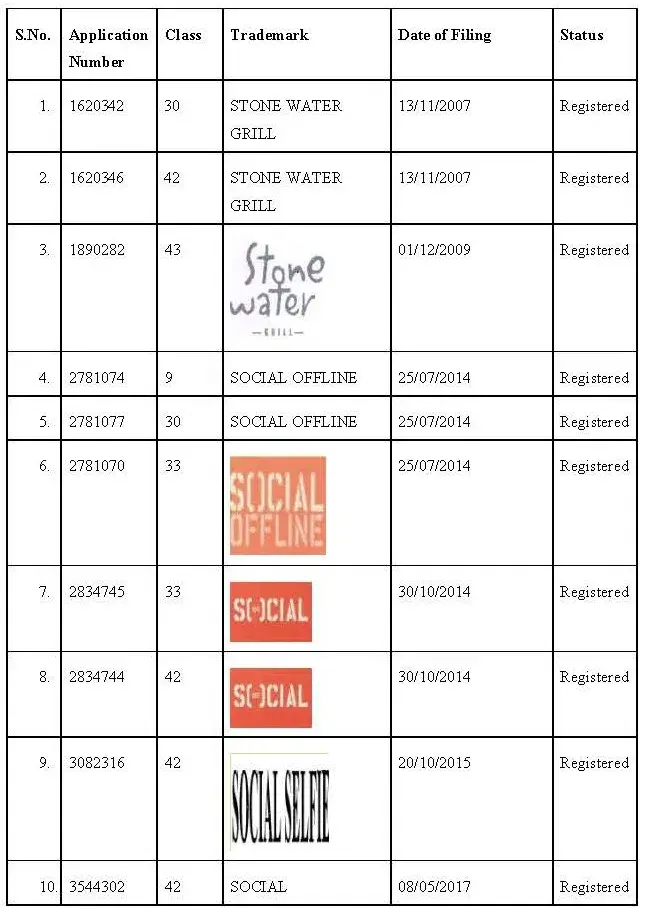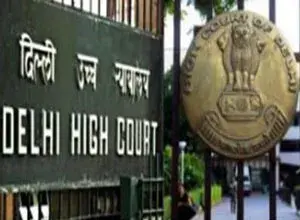Case Analysis on Impresario Entertainment vs. S&D Hosipitality
INTRODUCTION
The very first and perplexing issue that any court of law has to decide before proceeding in any suit is its territorial jurisdiction to adjudicate a particular suit. It becomes more complex when two worlds exist simultaneously i.e. the real world and the virtual world of the internet.
Recently, the Delhi High Court has to decide on the question of territorial jurisdiction in the case of
Impresario Entertainment & Hospitality Pvt. Ltd. v. S&D Hospitality. Taking a different view with respect to internet jurisdiction the court held that
‘on the basis of a solitary transaction, through internet plaintiff cannot claim that cause of action having arisen at Delhi this Court will have territorial jurisdiction to entertain the suit.’
THE CASE
Impresario Entertainment & Hospitality Pvt. Ltd. (hereinafter referred to as ‘the plaintiff’) is a company having its registered office in Mumbai and claims to have been carrying on its business in Delhi from 12, Hauz Khas Village, New Delhi-110016 and a restaurant under the name and style of ‘SOCIAL’. It further claims to have commenced its business in the year 2001 and adopting the mark ‘SOCIAL’ with respect to cafes in 2012 and ‘STONE WATER GRILL’ in 2007 for one of its restaurant located in Pune. It is the registered proprietor of the mark ‘SOCIAL’ and ‘STONE WATER GRILL’. The details of the registered trademarks as per the TMR records are under:

The plaintiff became aware of S&D Hospitality (hereinafter reffered as ‘the defendant’) is operating two restaurants using the trademark ‘SOCIAL MONKEY’ in Hyderabad in January 2017. It claimed that the defendant has emphasized on the word SOCIAL and copied the concept of the plaintiff of prefixing/suffixing the trademark ‘SOCIAL’ with another word being ‘MONKEY’ in this case. Further, plaintiff has a popular beverage by the name ‘A GAME OF SLING’ and the defendant has named a beverage as ‘HYDERABAD SLING’, which is identical and/or deceptively similar to the plaintiff’s beverage.
A cease and desist notice was issued on March 10, 2017. The plaintiff received no response regarding the notice. After which the plaintiff filed a suit for infringement and passing off against the defendants in the Delhi High Court. The plaintiff sought an ex parte ad-interim order wherein notice was issued and on a notice being issued the defendant challenged the territorial jurisdiction of the Delhi High Court to entertain the present suit.
The defendant challenged the territorial jurisdiction of the court on the basis that neither does it have its registered office within the jurisdiction of this Court nor carries on any business within the jurisdiction of this Court. It also pointed out that the plaintiff’s registered office is in Mumbai, which is also outside the territorial jurisdiction of this Court. According to the defendant the plaintiff has not even pleaded as to how despite Mumbai being the registered office of the plaintiff, its principal office is at Delhi. It contended that the case of the plaintiff is that due to the presence of the defendant on the website such as Zomato and Dine-Out, the defendant would invite the customers of the plaintiff to visit its outlet in Hyderabad is misconceived. In addition, it stated that the contention of plaintiff that the defendant is expanding pan India based on the application cannot be entertained for the reason mere filing of a trademark application does not provide the plaintiff with any cause of action to file the suit.
Replying to the averment of the defendant, the plaintiff contended that its principal office for franchising and licensing of all its brands is in Delhi. It agreed that it does not have any office or branch in Hyderabad but carries on its business in Delhi through its office in Hauz Khas Village with 250 employees and through its various outlets. It alleged that the defendant, to promote its business throughout India, has entered into a contract with Zomato.com which is a company having its office in Delhi. Zomato and Dine-Out are interactive restaurant guides through which reservations can be made at the outlets of the defendants from Delhi and the defendant can be contacted. The defendant intends to expand its operation pan India as is admitted by the defendant in its Linkedin profile.
ANALYSIS
In April 2017 the Delhi High Court had a similar issue in the case of Federal Express Corporation v. Fedex Securities Limited and Ors wherein the court rejected the Plaintiff’s contention of courts in Delhi having jurisdiction by virtue of the Defendants’ websites being accessible in Delhi, by placing reliance on
Banyan Tree Holdings v. A Murali Krishna Reddy[1] , wherein it was held that the cause of action by virtue of website access in a forum state may only be established if the Defendant can be shown to have specifically targeted consumers in the forum state and the same resulted in an injury or harm to the Plaintiff.
Placing the reliance on Banyan Tree case, even in the present case, the court was of the view that it does not have jurisdiction to decide the suit. It held that
‘even if the defendant has been able to attract customers from other jurisdiction including by way of Zomato and Dine-Out, the services of the defendant cannot be availed unless the customers go to Hyderabad. Through Zomato and Dine Out the customers will only be able to invite a customer and resume a table at the restaurant of the defendant at Hyderabad. The commercial transaction would take place only on the customer availing the services of the defendant at Hyderabad. Claim of the plaintiff is that at least one customer through the website booked the table at defendant’s restaurant from Delhi believing that it was a restaurant of the plaintiff. On the basis of a solitary transaction, through internet plaintiff cannot claim that cause of action having arisen at Delhi this Court will have territorial jurisdiction to entertain the suit.’
One important point to be mentioned here is that the Delhi High Court had a different view on the issue of territorial jurisdiction in the case of
Icon Health And Fitnes, Inc v Sheriff Usman And Anr[2] (September, 2017). It held that the existence of a business on online portals is enough to establish the court’s jurisdiction in a suit for passing off a trademark.
The court in this case also pointed out that ‘at best only reservation for dining at the defendant’s restaurant at Hyderabad can be made at Delhi. The transaction by acceptance of offer takes place only when the person making the reservation goes to Hyderabad and eats at the Restaurant of the defendant. Merely by reserving a table in the defendant’s restaurant at Hyderabad, the contract does not get concluded.’
At this point it is also essential to see how the phrase ‘carrying of business’ is interpreted by the courts, as this case rested largely on the phrase. In the
M/S. Dhodha House v. S.K. Maingi (2005) [3], the Honorable Supreme Court of India held that ‘For the purpose of carrying on business only presence of a man at a place is not necessary. Such business may be carried at a place through an agent or a manager or through a servant. The owner may not event visit that place. The phrase ‘carries on business” at a certain place would, therefore, mean having an interest in a business at that place, a voice in what is done, a share in the gain or loss and some control thereover.’
The case has rebuilt the principle that to have territorial jurisdiction establishing cause of action is necessary. No party will be allowed to have a free run without establishing the cause of action within the legally permissible territory of the court. The Delhi High Court has established itself to be the most sought after court for suits relating to trademark infringement and passing off. In such a situation, territorial jurisdiction becomes the most important issue to be decided. The recent developments show that the court is majorly is of the view that the suits which fit within the factual matrix of the Banyan tree case are the ones in which it will have requisite jurisdiction to decide the suit.
_______________
[1] 2010 (42) PTC 361 (Del.)
[2]
https://indiankanoon.org/doc/142404302/
[3]
https://indiankanoon.org/doc/1001948/


